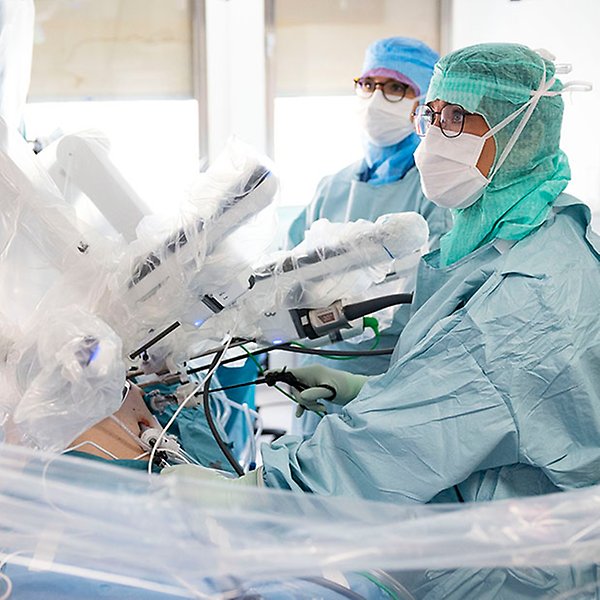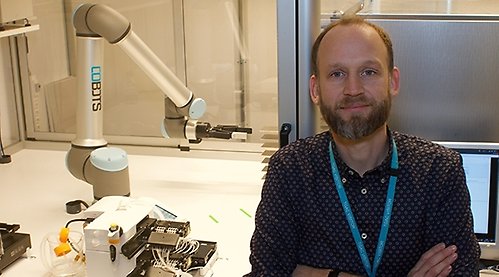Medical technology
Highly specialised healthcare has become increasingly technical and technical know-how is therefore increasingly important in health services. Modern healthcare needs not only doctors and other health staff, but also advanced technical expertise. Technology is essential both for use in hospitals and for new solutions that make it possible to deliver care remotely.
Medical technology is being developed to make earlier diagnosis possible and to create better therapies. Some examples are ion radiation oncology, advanced image analysis as an aid to surgery and early breast cancer diagnostics using infrared spectroscopy. Other examples include new biomaterials for patient-specific treatment of fractures, gene therapy to inhibit Alzheimer’s and Parkinson’s diseases and new biomaterials to treat blindness.

Examples of ongoing research
Successful care model with virtual home hospital
The Borgholm Model has received a lot of attention thanks to its good results in providing local car...

New hypothesis about crocodiles’ ears may help people with impaired hearing
Impaired hearing affects over 1.2 billion people worldwide. But crocodiles, who live almost as long ...

Self-learning machines take the step into drug discovery
In the winter of 2020, a novel robotised laboratory for cell profiling will open at Uppsala's Bi...

Examples of på centres, collaborations and research teams
Medtech Science & Innovation
Collaboration between Uppsala University and Uppsala University Hospital in the field of medical technology.
Materials in Medicine
The Materials in Medicine research team investigates the interaction between synthetic materials and living tissues from nano to macro level. Their aim is to develop better biomaterials for medical technology products and delivery systems for medicines, with a focus on investigating the mechanical and biological reactions.
Centre of Image Analysis
The Centre for Image Analysis conducts research into computerised image analysis. The researchers develop theory and methods, algorithms and systems for applications in life sciences, medicine and digital humanities, among other areas.
Competence Centre in Additive Manufacturing for the Life Sciences
Research and development of new technologies for 3D printing, including complex structures for improved bioprocesses, more reproducible 3D tumour models and faster optimisation of medical treatments.
Competence Centre in Additive Manufacturing for the Life Science
